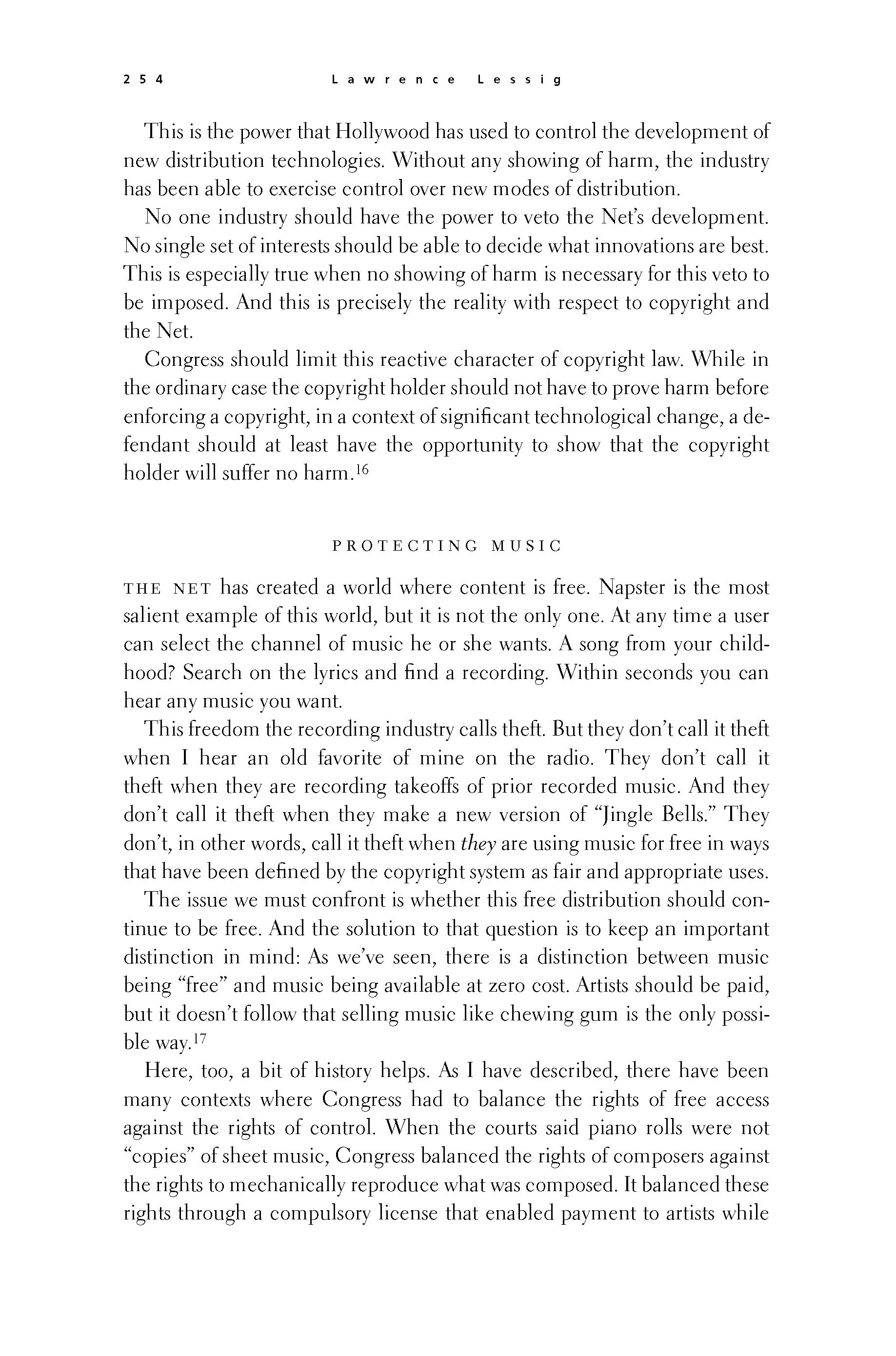 p253 _
-chap- _
toc-1 _
p254w _
toc-2 _
+chap+ _
p255
p253 _
-chap- _
toc-1 _
p254w _
toc-2 _
+chap+ _
p255
This is the power that Hollywood has used to control the development of
new distribution technologies. Without any showing of harm, the industry
has been able to exercise control over new modes of distribution.
No one industry should have the power to veto the Net's development.
No single set of interests should be able to decide what innovations are best.
This is especially true when no showing of harm is necessary for this veto to
be imposed. And this is precisely the reality with respect to copyright and
the Net.
Congress should limit this reactive character of copyright law. While in
the ordinary case the copyright holder should not have to prove harm before
enforcing a copyright, in a context of significant technological change, a de-
fendant should at least have the opportunity to show that the copyright
holder will suffer no harm.[14-16]
/tab\/tab\PROTECTING MUSIC/tab\/tab\
The net has created a world where content is free. Napster is the most
salient example of this world, but it is not the only one. At any time a user
can select the channel of music he or she wants. A song from your child-
hood? Search on the lyrics and find a recording. Within seconds you can
hear any music you want.
This freedom the recording industry calls theft. But they don't call it theft
when I hear an old favorite of mine on the radio. They don't call it
theft when they are recording takeoffs of prior recorded music. And they
don't call it theft when they make a new version of "Jingle Bells." They
don't, in other words, call it theft when _they_ are using music for free in ways
that have been defined by the copyright system as fair and appropriate uses.
The issue we must confront is whether this free distribution should con-
tinue to be free. And the solution to that question is to keep an important
distinction in mind: As we've seen, there is a distinction between music
being "free" and music being available at zero cost. Artists should be paid,
but it doesn't follow that selling music like chewing gum is the only possi-
ble way.[14-17]
Here, too, a bit of history helps. As I have described, there have been
many contexts where Congress had to balance the rights of free access
against the rights of control. When the courts said piano rolls were not
"copies" of sheet music, Congress balanced the rights of composers against
the rights to mechanically reproduce what was composed. It balanced these
rights through a compulsory license that enabled payment to artists while
[[254]]
p253 _
-chap- _
toc-1 _
p254w _
toc-2 _
+chap+ _
p255